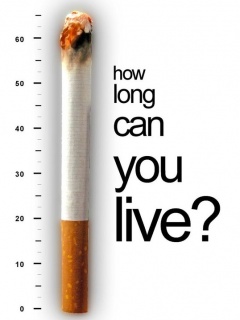Questions to ask yourself
Take the time to think of what kind of smoker you are, which moments of your life call for a cigarette, and why. This will help you to identify which tips, techniques or therapies may be most beneficial for you.
◾ Do you feel the need to smoke at every meal?
◾ Are you more of a social smoker?
◾ Is it a very bad addiction (more than a pack a day)? Or would a simple nicotine patch do the job?
◾Do you reach for cigarettes when you're feeling stressed or down?
◾ Are there certain activities, places, or people you associate with smoking?
◾Is your cigarette smoking linked to other addictions, such as alcohol or gambling?
◾ Are you open to hypnotherapy and/or acupuncture?
◾ Are you someone who is open to talking about your addiction with a therapist or counselor?
◾ Are you interested in getting into a fitness program?
Start your stop smoking plan with START
S = Set a quit date.
Choose a date within the next 2 weeks, so you have enough time to prepare without losing your motivation to quit. If you mainly smoke at work, quit on the weekend, so you have a few days to adjust to the change.
T = Tell family, friends, and co-workers that you plan to quit.
Let your friends and family in on your plan to quit smoking and tell them you need their support and encouragement to stop. Look for a quit buddy who wants to stop smoking as well. You can help each other get through the rough times.
A = Anticipate and plan for the challenges you'll face while quitting.
Most people who begin smoking again do so within the first 3 months. You can help yourself make it through by preparing ahead for common challenges, such as nicotine withdrawal and cigarette cravings.
R = Remove cigarettes and other tobacco products from your home, car, and work.
Throw away all of your cigarettes (no emergency pack!), lighters, ashtrays, and matches. Wash your clothes and freshen up anything that smells like smoke. Shampoo your car, clean your drapes and carpet, and steam your furniture.
T = Talk to your doctor about getting help to quit.
Your doctor can prescribe medication to help with withdrawal and suggest other alternatives. If you can't see a doctor, you can get many products over the counter at your local pharmacy or grocery store, including the nicotine patch, nicotine lozenges, and nicotine gum.
How to quit smoking: Identify your smoking triggers
One of the best things you can do to help yourself quit is to identify the things that make you want to smoke, including specific situations, activities, feelings, and people.
Keep a craving journal
A craving journal can help you zero in on your patterns and triggers. For a week or so leading up to your quit date, keep a log of your smoking. Note the moments in each day when you crave a cigarette:
◾ What time was it?
◾ How intense was the craving (on a scale of 1-10)?
◾ What were you doing?
◾Who were you with?
◾ How were you feeling?
◾ How did you feel after smoking?
Do you smoke to relieve unpleasant or overwhelming feelings?
Managing unpleasant feelings such as stress, depression, loneliness, fear, and anxiety are some of the most common reasons why adults smoke. When you have a bad day, it can seem like cigarettes are your only friend. As much comfort as cigarettes provide, though, it's important to remember that there are healthier (and more effective) ways to keep unpleasant feelings in check. These may include exercising, meditating, using sensory relaxation strategies, and practicing simple breathing exercises.
For many people, an important aspect of quitting smoking is to find alternate ways to handle these difficult feelings without smoking. Even when cigarettes are no longer a part of your life, the painful and unpleasant feelings that may have prompted you to smoke in the past will still remain. So, it's worth spending some time thinking about the different ways you intend to deal with stressful situations and the daily irritations that would normally have you reaching for a cigarette.
Tips for avoiding common smoking triggers
◾Alcohol. Many people have a habit of smoking when they drink. TIP: switch to non-alcoholic drinks or drink only in places where smoking inside is prohibited. Alternatively, try snacking on nuts and chips, or chewing on a straw or cocktail stick.
◾Other smokers. When friends, family, and co-workers smoke around you, it is doubly difficult to quit or avoid relapse. TIP: Your social circles need to know that you are changing your habits so talk about your decision to quit. Let them know they won't be able to smoke when you're in the car with them or taking a coffee break together. In your workplace, don't take all your coffee breaks with smokers only, do something else instead, or find non-smokers to have your breaks with.
◾End of a meal. For some smokers, ending a meal means lighting up, and the prospect of giving that up may appear daunting. TIP: replace that moment after a meal with something such as a piece of fruit, a (healthy) dessert, a square of chocolate, or a stick of gum
